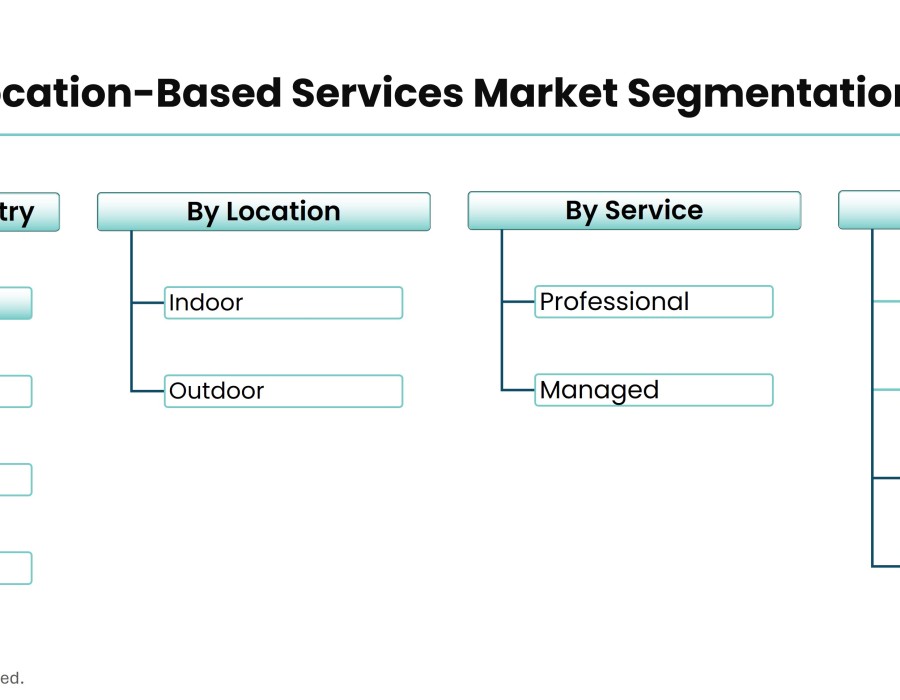According to Stratview Research, the location-based services market was estimated at USD 53.2 billion in 2022 and is likely to grow at a CAGR of 21.1% during 2023-2028 to reach USD 168.22 billion in 2028.
In the digital age, where information is abundant and interconnected, the rise of Location-Based Services (LBS) has given birth to a new era of Location Intelligence. This transformative blend of geospatial data and technology is revolutionizing how businesses and individuals harness the power of location to make informed decisions, optimize processes, and enhance overall experiences.
Defining Location Intelligence
Location Intelligence, often synonymous with Spatial Intelligence, involves the utilization of geospatial data to derive meaningful insights and support decision-making. At the heart of this concept lies the integration of location-based services, enabling users to leverage data in a spatial context for a myriad of applications across industries.
From GPS to Comprehensive Geospatial Insights
The journey of Location Intelligence began with the advent of GPS technology, providing users with the ability to pinpoint their exact location on the globe. However, the scope of Location Intelligence has expanded far beyond basic navigation. Today, businesses and organizations leverage advanced geospatial data analytics to derive insights that drive strategic planning, optimize operations, and enhance customer experiences.
Applications Across Industries
The potential applications of Location Intelligence span a diverse range of industries. In retail, businesses use location data to optimize store locations, understand consumer behavior, and implement targeted marketing strategies. In logistics and supply chain management, real-time tracking and route optimization based on location data contribute to increased efficiency and reduced costs.
Smart Cities and Urban Planning
One of the most impactful arenas of Location Intelligence is in the development of smart cities. Urban planners and policymakers leverage location data to make informed decisions about infrastructure development, traffic management, and public services. The result is cities that are not only interconnected but also optimized for efficiency and sustainability.
Precision Agriculture: Optimizing Crop Management
In agriculture, Location Intelligence plays a crucial role in precision farming. Farmers use GPS and satellite data to analyze soil conditions, monitor crop health, and optimize irrigation. This data-driven approach enables sustainable farming practices, reducing environmental impact and maximizing crop yields.
Real-Time Decision-Making with Location-Based Insights
The real power of Location Intelligence lies in its ability to provide real-time, actionable insights. Emergency services can optimize response times by analyzing location data to understand the fastest routes and allocate resources effectively. Similarly, businesses can make dynamic decisions based on current trends and conditions, thanks to the continuous flow of location-based information.
The Integration of Artificial Intelligence
As technology continues to evolve, the integration of Location Intelligence with Artificial Intelligence (AI) is taking center stage. Machine learning algorithms analyze vast datasets to uncover patterns, predict trends, and automate decision-making processes. This combination enhances the predictive capabilities of Location Intelligence, opening up new possibilities for innovation.
Challenges and Ethical Considerations
While the potential of Location Intelligence is vast, it is not without its challenges. Privacy concerns, data security, and ethical considerations regarding the use of location data are important factors that need careful attention. Striking a balance between innovation and ethical practices is crucial for the responsible development and deployment of Location Intelligence solutions.
Future Horizons: Unlocking Untapped Potential
Looking ahead, the future of Location Intelligence is brimming with possibilities. From the integration of 5G technology for faster and more accurate location data to the development of immersive augmented reality experiences based on geospatial information, the trajectory of Location Intelligence is boundless.
In conclusion, Location Intelligence is more than a technological trend; it is a transformative force that empowers businesses, governments, and individuals with the ability to make informed, location-based decisions. As we continue to unlock the potential of geospatial data, the journey of Location Intelligence promises to reshape how we perceive and interact with the world, opening doors to a future where spatial insights drive innovation, sustainability, and efficiency across diverse landscapes






Comments